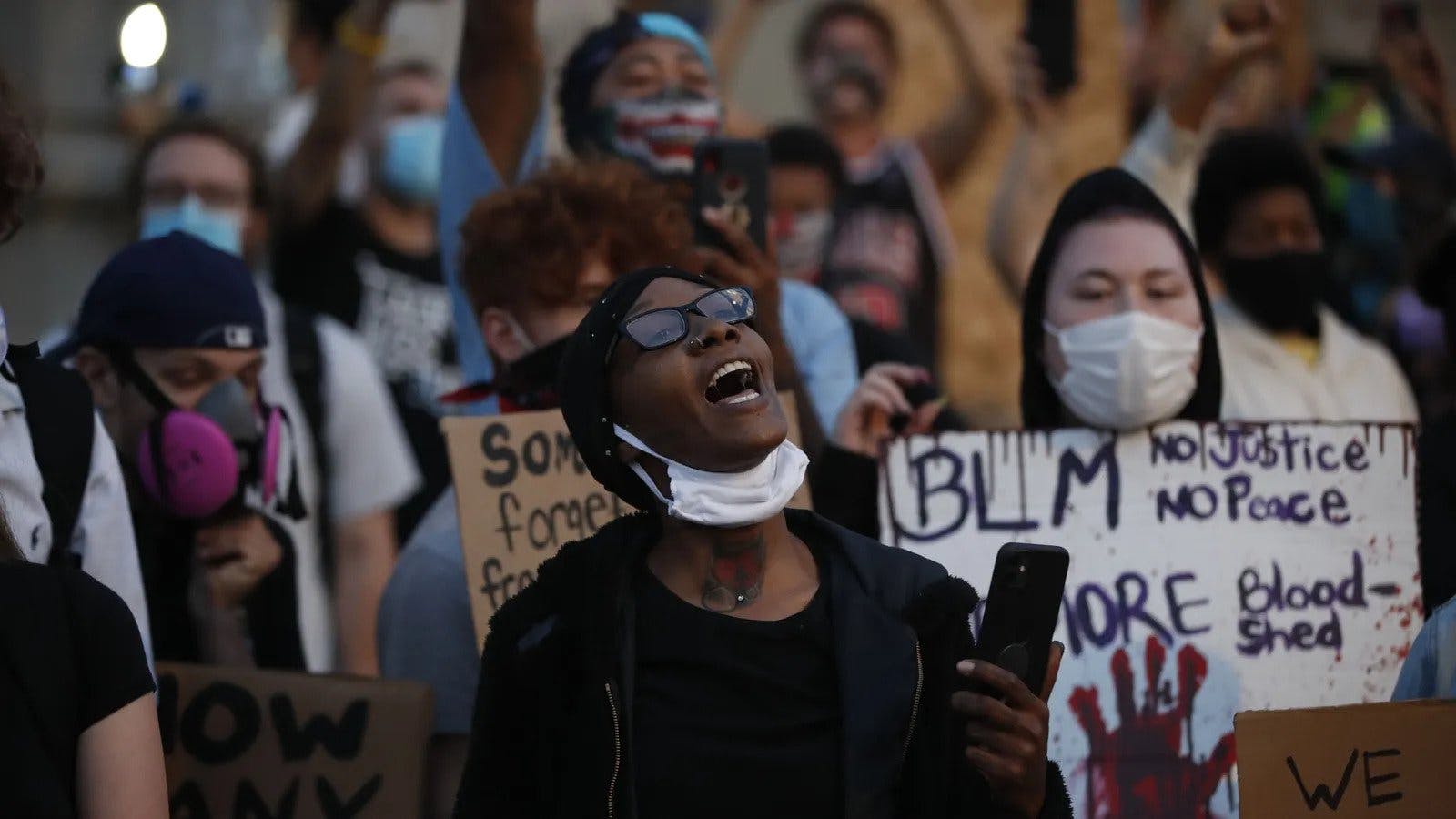In the summer of 2020, David Timmerman, Provost of Carthage College in Kenosha Wisconsin, was scrambling. When the pandemic closed classroom doors across the country, the college was already among the many liberal arts colleges feeling the squeeze of shrinking applicant pools and rising costs. He needed to respond to the politically polarized concerns of parents, students, and staff, all while protecting enrollment numbers and keeping everybody safe.
|
Photo: Kamil Krzaczynski/AFP via Getty Images |
And then, just as classes were about to begin, three miles away from Carthage College a police officer fired seven shots at close range into the back of Jacob Blake, an unarmed Black man. In the days that followed, thousands of protestors converged in Kenosha. The county declared a state of emergency and deployed 200 National Guard members. Amidst the chaos of the demonstrations, two more deadly shootings occurred. The county’s decision not to prosecute the police officer who shot Jacob Blake fueled continual animosity across the region and country.
And there in the heart of Kenosha at his Carthage College office, David Timmerman summoned up every drop of experience he’d learned through his decades as a professor of rhetoric.
I’ve had the pleasure of getting to know David Timmerman over the past three years as we collaborated with eleven other authors on a book project titled Called Beyond Our Selves. The book explores what it takes to treat vocation as a pursuit of the common good.
This past week I joined David and two other authors at a conference. When David’s turn came to speak, he rose to the podium with the exceptionally generous grace I’ve come to appreciate over these past years. His experience as a debate and public speaking coach made him a wonder to behold as he wove together stories into a precisely timed 20-minute talk, glancing occasionally at the few notes scrawled in his journal.
David’s talk, like his chapter in the book, taught a valuable skill he calls “productive conversation.” Drawing from his earlier book, he offered this list of what makes a productive conversation:
Unproductive conversation, in contrast, involves division, dichotomous thinking, combativeness, certainty, lack of listening, winning, distrust, hierarchical communication, and dogmatism.
We’re all desperately in need of productive conversation these days. Social media is not conducive to productive conversation, nor is bitterly sarcastic political commentary, nor bemoaning our political gridlock without finding any common ground in our own social circles.
What if we each looked through the list above to choose one or two descriptors of conversations to focus on. You might choose one positive one to develop and one negative one you need to stop.
For example, one quality on the list is inclusiveness. David explains it as building “discussions that are multi-vocal.” He says inclusiveness requires seeking out dissenting voices, knowing that there are many ways voices are silenced in communities. Later in the same conference, I heard another former college provost, Michael Emerson, offer an example of how he sought to practice inclusiveness as a white leader in a majority-white institution. He arranged regular meetings inviting all faculty of color and made a commitment never to move forward on a major decision if that committee disapproved.
David also recommended practicing easier conversations to build skills for more heated topics. “You need to walk before you can run,” he said. In rhetoric classes, he begins with local issues that aren’t aligned with political dichotomies. He trains students to pay close attention to how they handle these easier topics. They practice listing at least five different ways to approach a topic, identifying competing values that cause tension, and collectively devising solutions that take these into account.
This month, David Timmerman will be putting all those skills to the test again. When his administration announced their decision to increase faculty teaching loads, Carthage faculty voted to censure him and the college president. The censure, a symbolic public statement of disapproval, doesn’t immediately threaten administrators’ jobs, but it does communicate a desperate plea for productive conversation between faculty and administrators. At a time when no easy solutions will satisfy everybody’s needs and hopes, they’re going to need all those productive conversation practices.
I know we need those, too.
|
|
P.S. I’m happy to share with you a coupon for 30% off our book, Called Beyond Our Selves. Pre-order here with the promotion code AAFLYG6.

